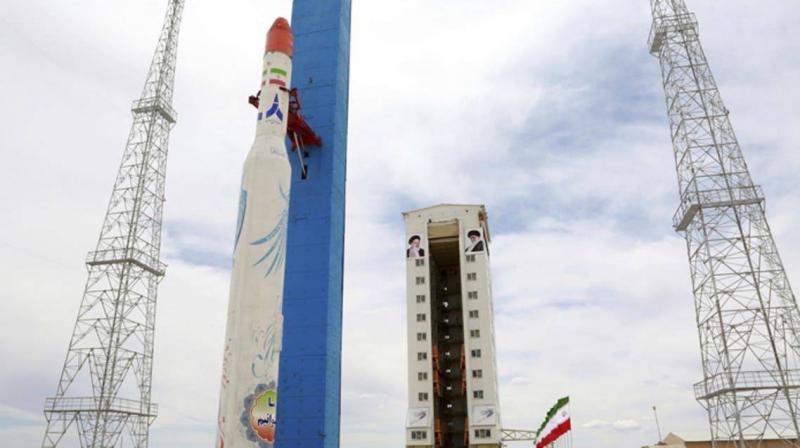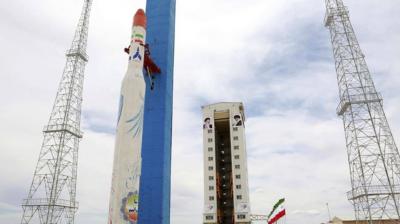Since the eighth round of direct negotiations between Iran and the countries still party to the nuclear agreement resumed two months ago, Tehran has increased its controversial missile maneuvers. Recently, the Revolutionary Guards have been working on developing a missile with a range of 5,000 kilometers. Amir Ali Hajizadeh, the head of the Revolutionary Guards Aerospace Force, announced new missile tests "with powerful solid-fuel engines and the use of composite materials in the body of the missile instead of metals," according to the Iranian university-affiliated newspaper "Farhikhtegan." According to the newspaper, this could allow Tehran to surpass the current maximum range of Iranian missiles, which is 2,000 kilometers. This maximum range refers to the Sajjil missile among the Iranian ballistic missiles.
On the past Thursday, Hajizadeh announced that "last week, a solid-fuel engine for an Iranian satellite launch vehicle was successfully tested." Typically, satellite launch vehicles use liquid fuel. However, solid fuel rocket engines are primarily associated with ballistic missile systems, raising concerns about the peaceful nature of Iran's space missile tests. Additionally, the head of the Revolutionary Guards Aerospace Force revealed that "the new missile body is made from a non-metallic material called composite." This raises concerns about the objectives of Iran's missile program, as not using metallic materials means a lighter missile and the use of solid fuel indicates greater thrust. Overall, this suggests Iran's attempts to extend the range of its missiles.
It is noteworthy that the former commander of the Revolutionary Guards, Mohammad Ali Jafari, announced in November 2017 that the range of Iranian missiles was determined to be "2,000 kilometers" according to the policies of Supreme Leader Ali Khamenei. He also added at that time that "Americans are present enough within a 2,000-kilometer radius of our country, so they will be responded to if we are attacked." However, a year after Jafari's statements, Hossein Salami, the current commander of the Revolutionary Guards, who was then the deputy commander, threatened that "if pressure on Iran increases, it will add more range to its missiles." Hajizadeh also warned Western countries in December 2020, stating, "No one has forced us to limit the range of our missiles to 2,000 kilometers."
It is worth mentioning that Iran refuses to negotiate on its controversial missile program, labeling it a "red line," while regional and non-regional countries express concern about Tehran's missile program development and call for a comprehensive agreement with Iran on various issues, including the limitation of its missile program. Despite repeated statements from U.S. officials about the Iranian missile program and linking it to "significant concerns regarding nuclear proliferation," American officials have commented on the possibility of reaching a comprehensive agreement with Tehran that would include the missile program, Iran's regional behavior, in addition to its nuclear program. However, in recent months, the U.S. administration has focused significantly on nuclear issues alone in the agreement.




